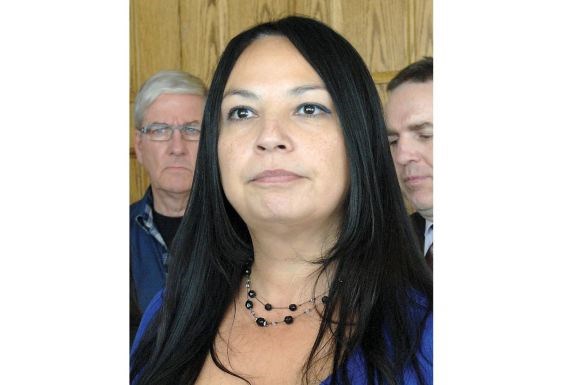The Canadian Human Rights Tribunal has found the federal government is discriminating against on-reserve First Nations children and families by denying them services on par with those delivered by provincial governments.
The decision, issued Tuesday, was hailed as a "win not only for First Nations but for all of Canada" by Carrier Sekani Family Services director Mary Teegee.
"If you don't give a child a good start at life, they don't have that good of a chance to become strong adults...and if we are not providing what they need to live up to their human potential, that's a loss not only for Canada but for the world," Teegee said when asked to elaborate.
The decision ends a battle that began in 2007 when the First Nations Child and Family Caring Society of Canada and the Assembly of First Nations filed a complaint alleging the federal government was violating the Canadian Human Rights Act.
Funding for on-reserve child welfare services has been pegged at 22 to 34 per cent lower than for provincially-funded off-reserve counterparts, the FNCFCSC said in a press release. Federal funding formulas and polices "create a perverse incentive to place First Nations children in foster care and do not address the cultural needs of children," it added.
A key contention for the FNCFCSC in its complaint was that the federal government was failing to live up to Jordan's Principle, named after Jordan River Anderson from Norway House Cree Nation.
Born in 1999, he had a serious medical condition that could not be treated on reserve. His family surrendered him to provincial care and after spending the first two years of his life in a hospital, he could have gone to a specialized foster home close to his medical facilities in Winnipeg.
But he remain in hospital for the remaining three years of his life as the federal government and the province of Manitoba argued over who should pay for his foster home costs. As a result, he never spent a day in a family home.
In 2007, the House of Commons unanimously passed a motion named after Anderson endorsing a "child first principle" where the government level of first contact must immediately pay for the services and refer any dispute to a resolution process. In its ruling, the CHRT found the federal government's interpretation of the principle was too narrow and ordered it to "immediately implement the full meaning and scope."
The decision could set a precedent for service delivery by the federal government in other areas, such as education, health, housing, and water.
"That's why we fought so hard to get a positive ruling," Teegee said.
The complaint to the CHRT had been slowed by delaying tactics on the part of the federal government. But with a new party now in charge, Teegee is believes action will be taken and noted Minister of Indigenous and Northern Affairs Carolyn Bennett has committed to living up to the decision. Teegee is hopeful changes will begin with introduction of the next federal budget.
The provincial government could become the target of a similar action alleging it is also underfunding First Nations service providers, Teegee said.
"It wouldn't be a surprising move," Teegee said.


